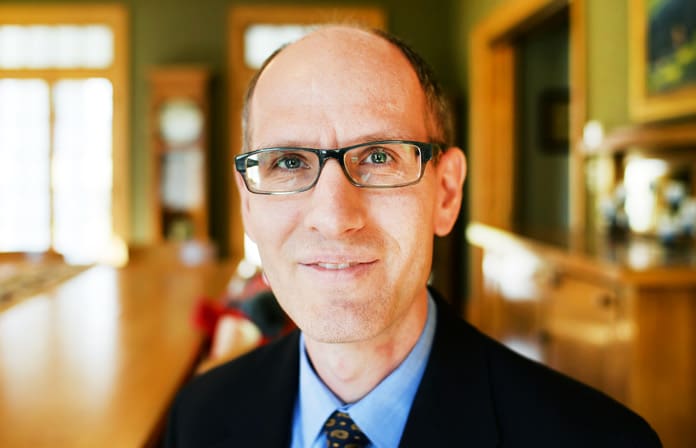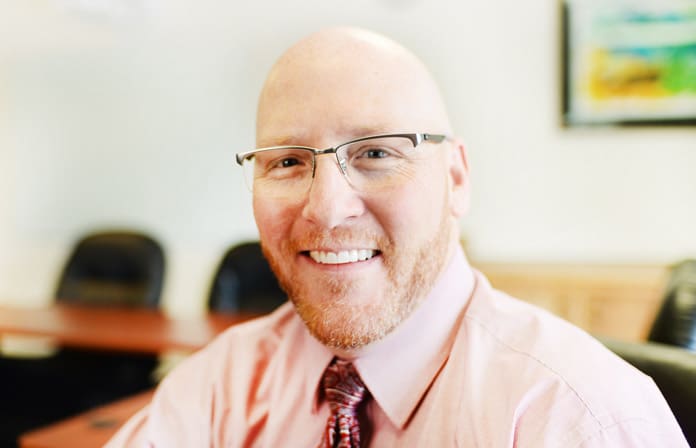June 20, 2017
“Overchoice: Too Much to Choose From, Too Little Time” is a new book written by Montana Western’s own Christian Gilde and Frederick Chilson. The book explores the pros and cons of a modern economy that offers more choices to consumers than ever before.

A new restaurant opens in town, so you decide to try it out with a group of friends. The menu is enormous and everything sounds fantastic. You’ve heard the salads are great, but you’re leaning towards steak. Then you flip the page and remember how long it’s been since you’ve had really good clam chowder.
When the server arrives you ask them to come to you last. There are so many choices, you need a little more time. Your turn finally arrives and, feeling pressured to make a quick decision, you make your friend decide for you. They choose ribs. They’re delicious, but on the ride home you can’t help but regret not ordering the soup.
Associate Professor Christian Gilde and Professor Frederick Chilson’s new book “Overchoice: Too Much to Choose From, Too Little Time,” is about situations like this.
The main goal of the book is to explore “how people relate to too much choice.” In the example given in the book, Gilde and his wife went to Cheesecake Factory. Overwhelmed by the amount of options offered by the restaurant, they went with their default choice of chicken pasta and salad.
Basically, the large assortment of choices caused them to make no choice. This is an interesting phenomenon that Gilde and Chilson explore in “Overchoice.”
One study they cite is about retirement fund options. The study showed that many people chose to have no retirement fund rather than stress out over all of the options: “Offering 4 funds resulted in a 75% participation rate, whereas offering 59 funds dropped the participation rate to 60%.”
This illustrates a point made in the book, that “too much choice can decrease the motivation to choose and the satisfaction with the chosen option.”
I asked Associate Professor Gilde how this all happened? How did our lives become so complicated?
He said, “People like choices. Don’t get me wrong. Choices are good because the chances that you’ll find the right thing are pretty good, but if you spend energy and time to find the best thing, you might invest more than you need to. When you’re looking for a house or a car, sure you want to spend some time, but when you’re just looking for over the counter drugs, getting toothpaste or shampoo…”

I assumed that living in a town like Dillon, Mont. limited our choices as consumers considerably, but Gilde feels that overchoice affects us as well. When I mentioned that there are only two grocery stores to choose from in town, he told me a story about shopping for cold medicine.
“I had a head cold and someone recommended Mucinex. I’d never used this brand. When I got to the store they had Mucinex 12 hours, Mucinex 24 hours, Mucinex Daytime, Nighttime, Extra Strength. I just wanna have something that works for me. Decades ago there was one thing, and you picked it up.”
A study from the 5metacom marketing website cited in the book reports that the average supermarket now stocks 45,000 products compared to 3,700 in the 1950s.
Gilde and Chilson are both business instructors, so the book also talks about strategies business owners can employ to ensure that they don’t overwhelm their customers with options.
“Something they have on a lot of consumer products now is what they call nudging. They put the main information in the simplest terms possible to help you choose. It’s pretty smart. Things like how many calories, how much sugar, and color coding on the box about allergens make it a little bit easier (to make a choice). Nudging is a way to put choice architecture in place,” Gilde said.
In the book, choice architecture is defined as “a structure that is put in place to help people with their decision-making.”
Gilde explained it with this example: “Have you ever been to Cold Stone Creamery? Ice cream parlors allow you to sample, but they don’t allow you to sample 15 different flavors. Sampling is a part of choice architecture. It makes things a bit simpler for you.”
Gilde wanted to reiterate that he’s not condemning choices as a whole: “I’m not necessarily saying overchoice is bad, too many choices is not good or bad, but you just have to be smart about it.”

This passage from the book details the pros and cons of overchoice quite well: “On the one hand, overchoice can be beneficial in allowing people to have enough alternatives to find what they want or what is good enough for them. On the other hand, overchoice can be overwhelming, confusing, and even unhealthy, and can lead to bad consumer decisions.”
“Overchoice” is an anthology. The first chapter was written by Gilde and Chilson and the subsequent chapters were written by others, many of them former colleagues and friends. Gilde said he worked closely with the other authors, asking them questions and giving suggestions.
The ideas I’ve written about here are only a small part of the book, which features many other unique and fascinating takes on the subject.
Now that “Overchoice” has been published, Gilde is looking towards his next project. It will be about the decline of shopping malls. Is this a public space or a private space? What urban planning needs to be done to utilize these abandoned spaces?
“People try to convert malls into something else. They’ll put the DMV in there or recruitment centers for the army. They’re very often too expensive to tear down, so they have to repurpose it, turn it into a community space. Sometimes you’ll have shopping downstairs with apartments and professional spaces in the areas upstairs. I haven’t given up on the mall,” he said.
Gilde and Chilson will be spending their immediate future gathering data on these derelict monuments to America’s past. In the meantime, “Overchoice: Too Much to Choose From, Too Little Time” can be purchased on amazon.com where you can shop for over 300,000,000 other products everyday, at any time you choose.